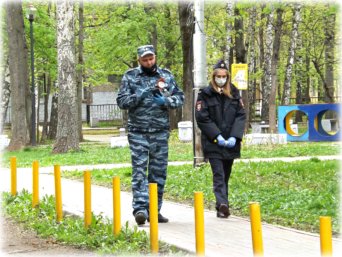- About
- Topics
- Picks
- Audio
- Story
- In-Depth
- Opinion
- News
- Donate
- Signup for our newsletterOur Editors' Best Picks.Send
Read, Debate: Engage.
Regional governors are not concerned with executing the proposals put forward by President Vladimir Putin during the latest video conference, which has been a unique situation in the country and could be a sign of the Kremlin starting to lose its grip of power.
On Monday, Putin issued a decree giving a green light to a gradual easing of the restrictions introduced in early April to contain the coronavirus spread. Just a few hours after the decree was published, several regional leaders said they would not rush with the implementation of Putin's decree.
While the governors of the Leningrad and Murmansk regions were quick to announce the opening of shops, barbershops, other consumer services and even museums immediately, among those who dare disobey the President there were governors of Moscow, St-Petersburg, Maritime territory in the Far East and several other regions.
The disunity among the country's elites was immediately felt by the population, with tens of thousands of people going out to the streets during last long weekend, openly ignoring safety measures and braving police patrols. In turn, police turned a blind eye on the violations, which are punishable by hefty fines.
For instance, in the Moscow suburb of Mytishy, residents enthusiastically played soccer with police watching as fans. Significantly, the game took place at the park steps from the city administration's building.
In Yekaterinburg, in the Urals, residents with children strolled in the streets and parks by the thousands, while police appeared not to notice.
All that adds to a feeling that the regime of self-isolation, which formally lasts till May 31, has been turning into fiction. The Russian public, tasting the authorities' confusion, may start to ignore their orders altogether, local experts are anxious.
Russian people may not have gained collective immunity against coronavirus so far but they have definitely worked out a collective immunity against the authorities orders, social psychologist, professor in the People's Friendship University Maxim Kiselev says. "We see complete disarray of the political elite and its inability to undertake any measures to restore citizens' confidence. Putin's every new appearance only aggravates the sensation of the Kremlin's progressive impotence. Just compare how brutally the police broke up opposition rallies last July and how the same police try not to notice defiant ignoring of the lockdown rules this May", he says.
What has been happening in the country during May is a classical illustration of the centuries-long paradox when the harsh laws are offset by their lax enforcement.
Kiselev believes the Kremlin has been trying not to overdo the restrictions so as not to transform currently spontaneous sabotage by the population into conscious political protests. "The evolution could be lightening. A century ago psychologist Kurt Levin discovered that most of the escaped inmates had escaped the prisons in the final weeks of their confinement. Levin found out that the closer the liberation comes, the more difficult it's getting to stay in jail. We are all now like those 'inmates' counting down the days left before lifting the lockdown", he says.
The professor stresses that the Kremlin has been facing a dilemma: either to stay firm but stir public outrage or to put a blind eye on the mass disobedience but thus deflate its sacral aura. "The Kremlin finds itself in a zugzwang position of a chess player: whatever it does, it aggravates the situation. The country has been witnessing Putin's meekness. People see his desire to switch responsibility to the governors. The Kremlin's influence disappears by the minute. This brings about a very destructive possibility of anarchy that no police or army could contain", Kiselev says.
The Kremlin shows no sign of confusion, founder of the School of Self-governing Natalia Shavshukova disagrees. "What we see is a deliberate 'good cop – bad cop' game. In the last 20 years, responsibility for all unpopular decisions has been laid not on the Czar but on its servants – that is, federal ministers and regional governors," she says.
Shavshukova does not rule out that what looks like discord in the elites might be a part of the pre-written scenario. "Honestly speaking, I can't imagine that the governors, with the rarest exception, have balls to make any decisions without coordination with the Kremlin. The scenario is, likely, to assign the governors the role of lightning rods to channel the population's irritation on them and so divert the storm from the President," she believes.
The coronavirus pandemic opened up an abscess that has been swelling in Russia for decades, a member of the Russian Academy of Science Igor Gundarov says. "The information about the scale of the epidemy in Russia has been beefed up because the healthcare system benefits from big numbers: the clinics receive federal financing under the number of patients hospitalised. The authorities benefit from the opportunity to rule with Constitutional rights and freedoms suspended. This is why both healthcare officials and regional governors are reluctant to follow the Kremlin's calls to ease the regime", he says.
Gundarov reveals he personally advised the Belorussian President Alexander Lukashenko not to copy Putin's measures and not to introduce quarantine in Belarus. "You see, Lukashenko followed my advice and no disaster has happened there. In Russia, the mess has been deepening because there's not a single epidemiologist in the governmental anti-epidemic board. The board comprises of MPs, diplomats, security officers, financial and tax officials, military, spies. But no medical experts are included", he laments.
Image by Igor Serebryany

